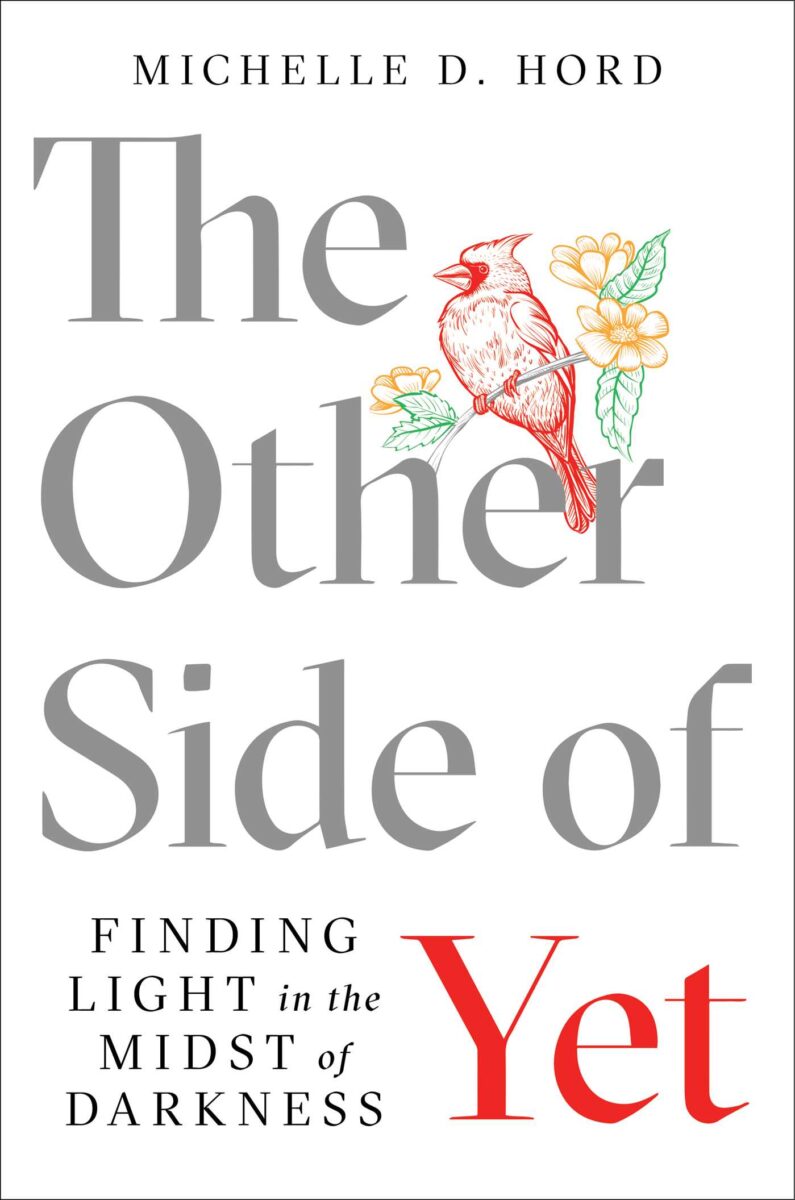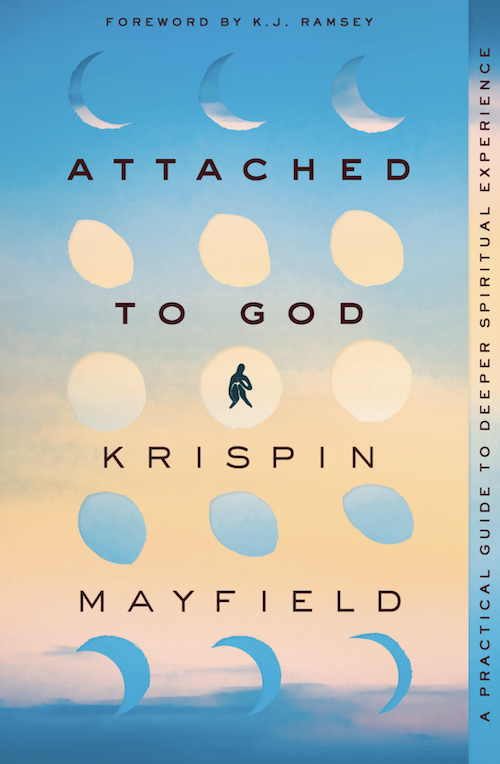God’s Love Shines Through the Broken Pieces of Our Lives: Michelle Hord and Krispin Mayfield
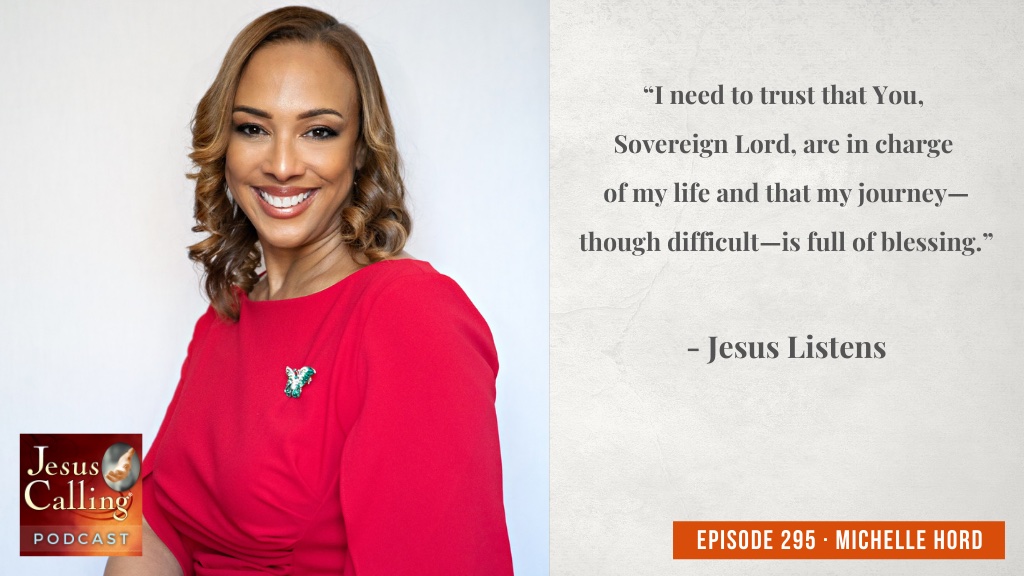
Michelle Hord: When you are the victim of a violent crime, when you find yourself in a special victim’s units office with a D.A., you literally feel like your life is in jeopardy. And so being able to hide and feel shielded in God’s love and God’s protection have been incredibly important to me in different parts of my journey.
God’s Love Shines Through the Broken Pieces of Our Lives: Michelle Hord and Krispin Mayfield – Episode #295
Narrator: Welcome to the Jesus Calling Podcast. Countless articles have been written and studies conducted about the power of prayer, not just from theologians, but from mental health experts and those who study the pathways of the brain. They all come to the same conclusion: prayer and having a relationship with God make us stronger. Prayer can calm our nervous systems, shutting down our fight or flight response. It can make us less reactive to negative emotions and less angry. It can give us hope that we are not alone–even in the most trying of times.
Our guests this week share how their personal relationship with God has held them up in times of sadness and loss, doubt and fear, and that building a foundation of trust and familiarity with God has been what keeps them moving forward when things fall apart in their lives. Michelle Hord is a media executive and storyteller, and founder of the non-profit Gabrielle’s Wings. Krispin Mayfield is a writer and a counselor who studies attachment science—a discipline that looks at how relationships develop between humans and correlates our various styles of attachment to how we develop our relationship with God.
Let’s start with Michelle’s story.
Michelle: My name is Michelle Hord, and I have worked in the media business for thirty years. I’ve always worked in the business of telling stories, and I started my career at the crime show America’s Most Wanted.
An Early Love for Storytelling
I’m a bit of an adrenaline junkie, so I was attracted to the immediacy and importance of news. I always loved the news growing up. I remember as a kid I was homesick the day President Reagan was shot, and I literally flipped back and forth between the channels to see how it was being covered. So I knew that I always wanted to know what was happening, and I also felt like it was such a noble call to be the first witnesses to history and how history would be recorded in important moments in our community and country and world’s evolution to be in a position where you could capture it.
I found myself attracted to the feel-good stories, and the feel-good stories are not always what you would imagine them to be. Sometimes the feel-good stories are very painful stories that actually offer inspiration. And as I went on to work at The Oprah Winfrey Show and Good Morning America and other places, while I obviously covered a lot of different types of stories, those were the ones where truly my heart was attracted to those stories.
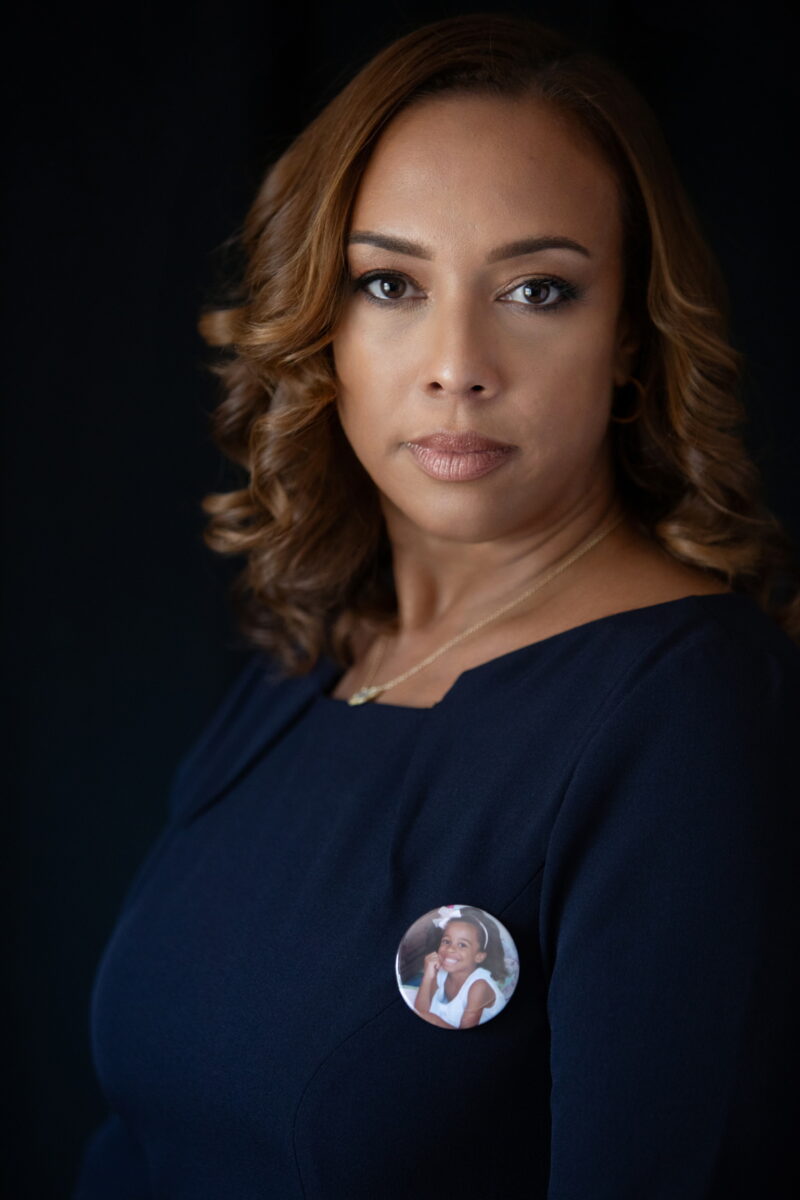
I was a hardcore, true-blue journalism student, so America’s Most Wanted was not the place I imagined as my first job, but I needed a gig and it wound up, as you know, it’s so funny—we sometimes have our course, we think, and then God provides what we think are detours that are actually the great path. So it was a wonderful place for me to start. And it truly taught me compassion because I spent a great deal of my time there working on missing children’s stories. So I would, as a young twenty-something, walk into the worst moment in a woman’s life or a man’s life when their child had gone missing.
“I always thought there’s beauty in how the human spirit fights to survive, fights to find faith, and how strangers even try to be the light in really dark stories.” – Michelle Hord
Unfortunately, there were not a lot of happy endings, but it positioned me in a way where I was in a front-row seat to trauma and the worst moment in people’s lives. And I always thought there’s beauty in how the human spirit fights to survive, fights to find faith, and how strangers even try to be the light in really dark stories.
Not Everything Is as It Appears
I met my first husband when we were young people. He was my brother’s R.A. in college. We were good friends for a long time, talked about our bad relationships, and joked that we were going to pledge to get married when we turned thirty if neither of us had gotten married. So it is always a very friendly relationship.
By the time we were in our early to mid-thirties, both of us really wanted to have a family and decided to settle down. So, you know, the way I would describe my marriage is that the pictures and the words did not always align.
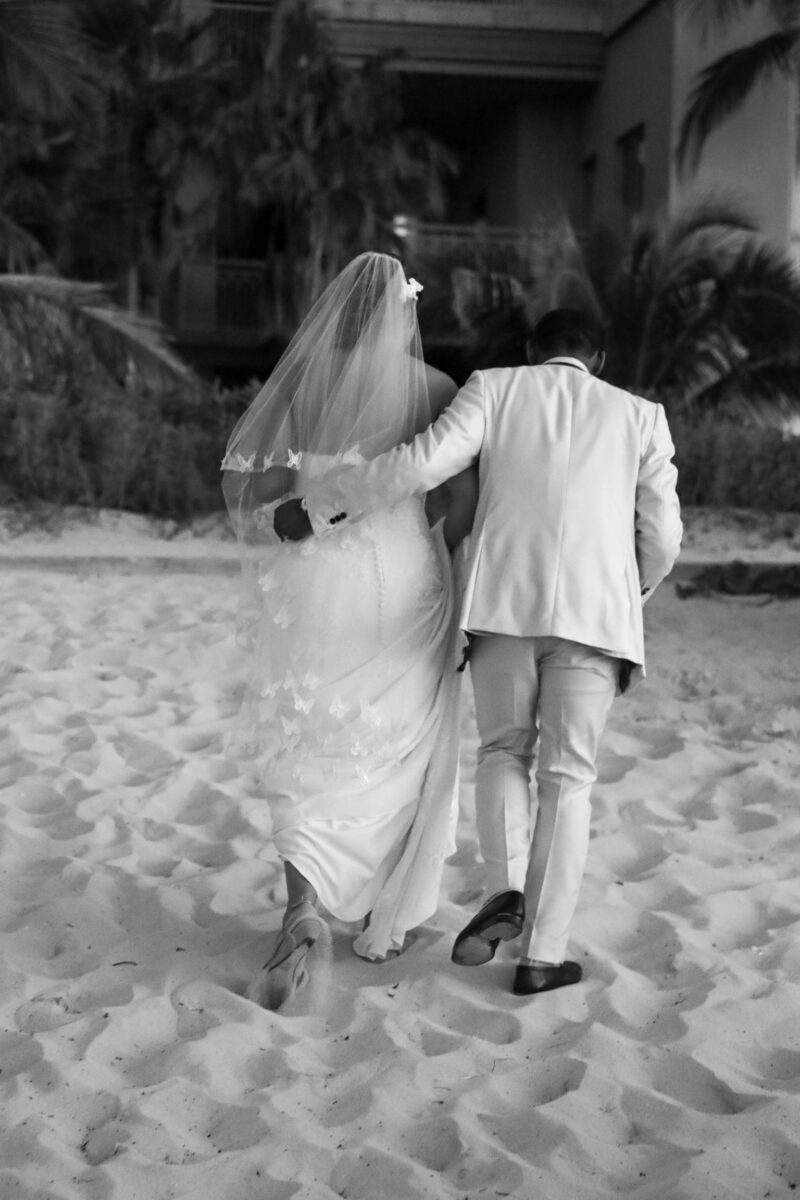
It was a great story. It was a beautiful wedding. And at the same time, there were certainly elements of the marriage that were not as they appeared on the outside.
It was a marriage where there was a lot of struggle with communication and a lot of the things that most couples struggle with. We certainly sought all kinds of counseling, Christian counseling, we were involved in our church and other counseling. But it felt as if there was a language barrier where I was hearing and experiencing and expecting one thing, and he was hearing and experiencing something quite different. And really, the thing that held us and the common denominator was our love for our daughter. That was the space that was non-negotiable, that no matter what happened, we both shared this adoration for our daughter, which is why what happened is still impossible to comprehend.
I decided, over time, to seek a divorce. I don’t think anyone should—or probably does—make a decision like that overnight. I felt like I had done everything with Christian counseling and prayer to repair the marriage. And as our daughter Gabrielle was getting older, I was also aware that I was setting the example for her of how marriages should work, how women should be treated, how moms should be treated. Her eyes on this story became front of mind for me, so I decided painfully—as I’m sure everyone finds when they make this decision—that I wanted to ask for a divorce in fall of 2016. It was not something that my husband wanted. He fought it tooth and nail, and it was months and months and months of lawyers and negotiation. And so I tried to focus on the common denominator of Gabrielle.
Remembering Gabrielle
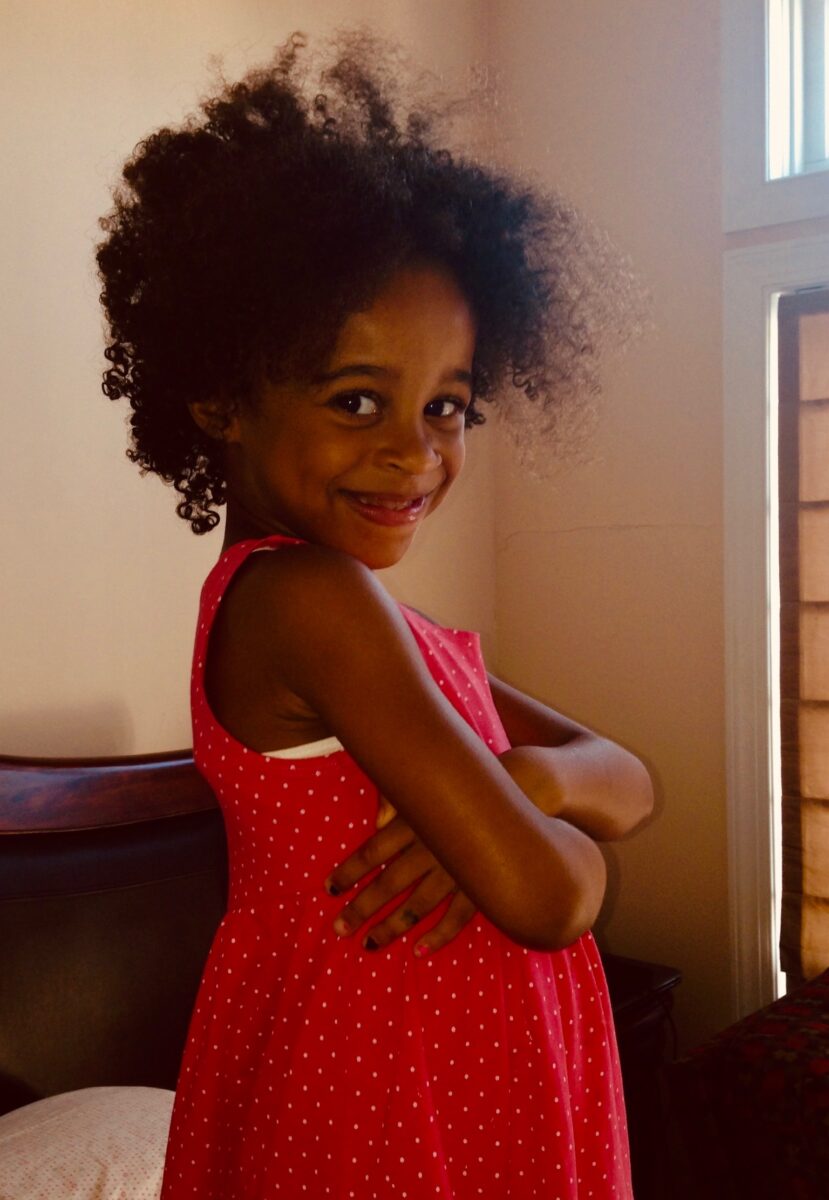
When I think about my daughter, the words that come to mind are bubbly, effervescent, kind. Her little feet almost looked like they didn’t touch the ground. And that’s a sentiment that I just don’t feel as a mom who’s probably a little biased. But classmates, principals felt she just had this unbelievably warm, loving spirit that was so excited just to be here and to engage and to learn.
I remember early on taking the first picture of her, you know, those first baby pictures at a J.C. Penney studio, and there was one where she had a little laugh and someone saying, “Oh, babies don’t laugh that young. It’s probably gas.”
And I was like, “Nope, this kid’s laughing.”
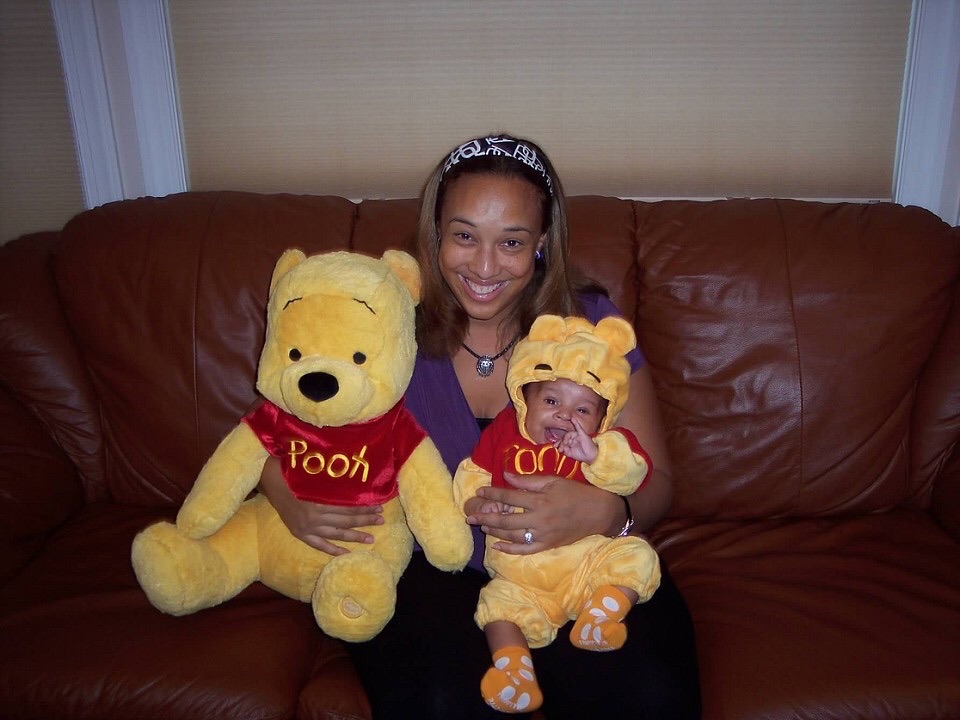
She was a happy child, for which I’m incredibly grateful. She was smart and made people laugh. She was kind, and those little notes from those seven and eight-year-olds were just jewels to me that I hold on to this day.
On June 5th, 2017, my then-husband agreed to sign the divorce papers. I remember leaving work, rushing to meet him at a courier service to sign the papers, literally sweating through the suit I’d worn to work in anticipation and anxiety and fear. We signed the papers, made a couple of weak jokes about how unceremoniously our very ceremonious marriage was ending, although it started with great pomp and circumstance.
I remember as we walked out, we hugged each other briefly and he looked at me and said, “I’m sorry for everything that’s happened the last several months.”
I was so relieved by that, and I said to him, “You know what? All that matters is that we love our baby, that she has both of her parents and that we work together. We were friends first. We’ve known each other for more than twenty years.”
I went back to my rental place that night. It was the night that Gabrielle was spending with her father. And our plan was the next afternoon to talk to her about logistics in terms of what was going to happen next with living arrangements. She was aware of the divorce, but at this point now, we would move into the next stages. So I went home and slept soundly. I cried. I prayed. I shared praise reports with friends about the fact that this was finally happening. We were finally turning a page.
I woke up the next morning, and as I did every morning when we weren’t together, I sent Gabrielle a video saying good morning, that I loved her, and I received what I now know was not from her, but was a fairly innocuous typical note back of, “I love you, Mommy.”
I went to work that day and like a lot of moms, once you have a child, a phone is like a third arm. So I took it with me literally everywhere. And in a two-minute span of going to the bathroom or grabbing lunch, I came back to my phone to see a missed call from our caregiver. And when I called her back, she was hysterical, and the words I remember were, “There’s blood everywhere.”
I told her to get out of the house. I immediately looked for a dark room, a closet, and I shut the door and I got on my knees and I said, “God, I do not know what this is, but whatever it is, please give me what I need to survive it.”
”I immediately looked for a dark room, a closet, and I shut the door and got on my knees. I said, ‘God, I do not know what this is, but whatever it is, please give me what I need to survive it.’” – Michelle Hord
At that point, I imagined that Gabrielle had gone to school and her father killed himself. Within a few minutes, the darkness really started to creep in, and I realized I hadn’t spoken to her that day. I called a fellow mom from her class and realized she hadn’t shown up to school. And then it became very dark because the best-case scenario then was that something had happened to her dad and she had witnessed it and was alone in the house. And on what felt like the longest drive of my life home, I started calling family and friends to alert them. I obviously asked the nanny to call 911.
As I got closer and closer, it was like time slowed down and I was catapulted in a very cruel, painful, ironic way back to my first job. I turned the corner and saw police tape, bystanders, some who were there just to gawk and some who care. The first person I identified was my pastor standing there, and he almost lifted me out of the car like a child and whispered in my ear, “It’s true.”
My then-husband had murdered our little girl.
I remember clear as day being driven back to the rental house from the crime scene and what was clear to me—because this was not the man I married, I didn’t live in an abusive household, there were no threats of violence, there was no physical violence. There was nothing in my life in my experiences, frankly, even in the stories I covered, that was this—it was an act of defiance. It was an act of defiance to say, “In the end, God is going to win.” I don’t know-how. I don’t believe God did this to my child. I don’t believe the platitudes of “everything happens for a reason.” But I do know there’s a God.
“It was an act of defiance to say, ‘In the end, God is going to win.’ I don’t know how. I don’t believe God did this to my child. I don’t believe the platitudes of ‘everything happens for a reason.’ But I do know there’s a God.” – Michelle Hord
And I remember as if it was yesterday, that evening as friends gathered, being on my knees in the living room, praying and holding hands with family and friends and saying over and over like it was a battle cry: “Though He slay me, yet do I trust Him? Though He slay me, yet, do I trust Him?”
God Can Shine Through the Broken Pieces
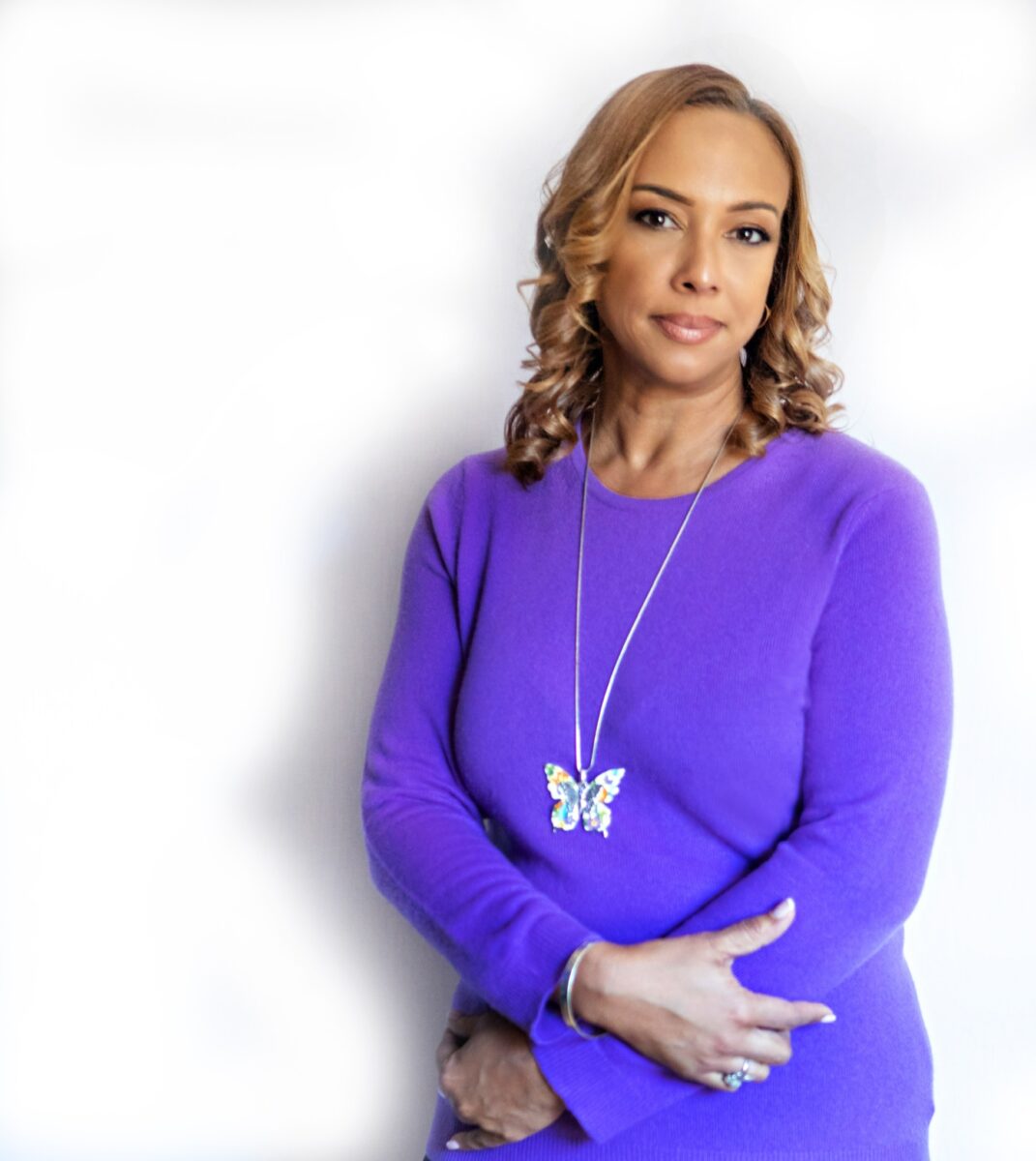
Anyone who’s hearing this, who perhaps is suffering a loss, I don’t believe there’s a grief index. You know, the heinousness of my story only speaks to how loud the hallelujah is. However, we all have dark, unexpected, painful chapters of our lives where we have a choice. We have a choice to live in that space, sit in that space, stew in that space, or we have a choice to say, “Yet.”
And to me, yet is this gift, this courageous gift God gives us to say, “This does not take away anything that happened before, the pain, the suffering, whatever war wounds and scabs you’ll walk away with. Yet it does say that God can take what was meant for evil and use it for good. Yet it does say that we can evolve from a mindset of scarcity to a mindset of abundance. Yet it does say we can find love again, even potentially, and find ways to trust again, potentially.”
So that conjunction to me was a lifeline.
I would say that my relationship with God now has gone from one of formality to one of intimacy. I think that I have, in my own way—and we all have our individual relationships and perhaps beliefs on how we speak to God—I’m in an ongoing dialogue and conversation, almost meditative, with Him. And I’m open to signs that He may send through nature, through other people who may intercede on His behalf at times. I am open to the fact that there are on-earth signs, miracles, angels God uses if we slow down long enough to listen, so they can help us get from point A to point B.
“There are on-earth signs, miracles, and angels God uses if we slow down long enough to listen.” – Michelle Hord
I think I probably first discovered Jesus Calling through a dear friend who told me about the Jesus Calling app in 2015 or 2016, frankly, at a time when I was struggling in my marriage, and she thought it could be inspirational. And I every morning as part of my wake up, get the coffee, phone in hand, it was the first place I went.
After my daughter was murdered, it became something else. It became part of a toolkit of army equipment, frankly, to survive. And there were several devotionals that I read, everyday people would send me things. But my relationship with Jesus Calling, the intimacy of how the passages are written, was familiar in a time when there wasn’t much that still felt familiar.
One of the commitments I made to myself—because I needed to start new rituals—was that every morning I would get up, I would read a portion of the Bible, I would write, and I would read several devotionals, and I would pick one that day that I would send to a small group of friends. And I still do it almost five years later, and a lot of times those are Jesus Calling devotionals.
I know that He has used this horrific, horrific experience and the holes in my heart as a testimony to others. It certainly wasn’t my intent, but by watching me, by listening to me, by reading journal entries that I wrote to friends, by seeing me speak at Gabrielle’s service, where the last thing I said was, “Though He slay me, yet, do I trust Him?” Somehow, God used me as a missionary. And so my ministry is this: I’ve survived. There is a complete vulnerability and weakness and brokenness that takes us to Him in a unique way, where He truly can shine through all of the broken pieces.
“There is a complete vulnerability and weakness and brokenness that takes us to Him in a unique way, where He truly can shine through all of the broken pieces.” – Michelle Hord
Narrator: If you would like to know more about Michelle Hord’s story, you can find her book, The Other Side of Yet, wherever you buy books. To learn more about Gabrielle’s Wings, the ministry Michelle established to help children of color in vulnerable communities, visit their website at www.gabrielleswings.org.
Stay tuned to Krispin Mayfield’s story after a brief message.
Jesus Listens, now available on audiobook!
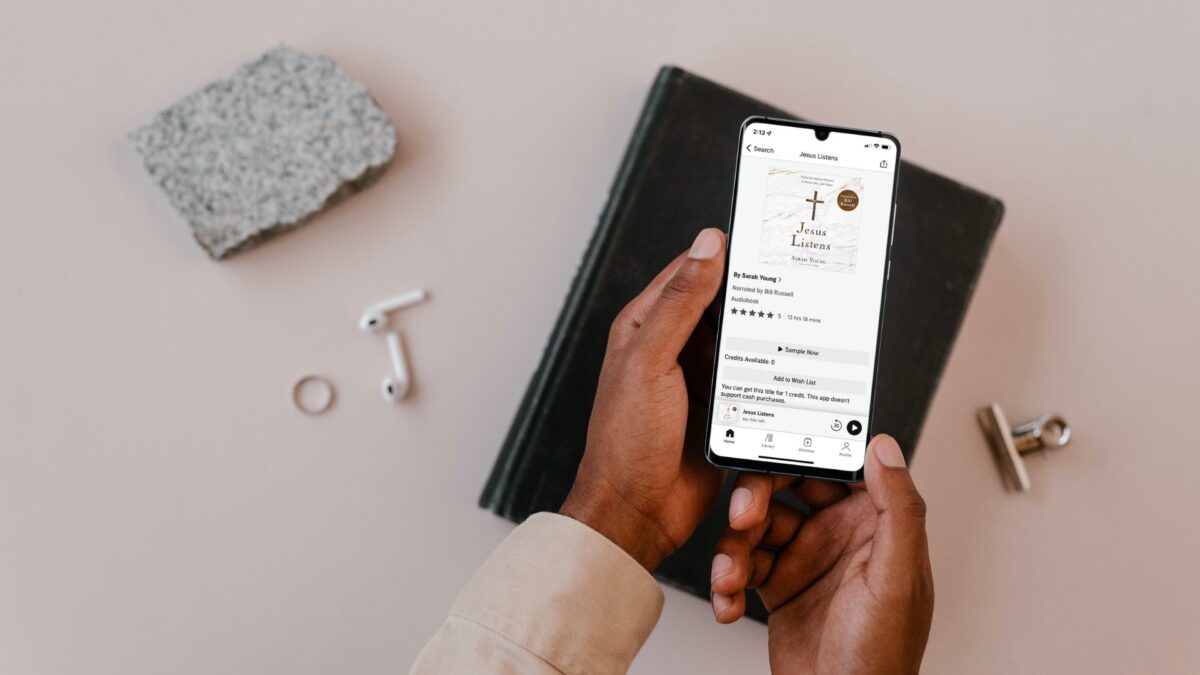
Jesus Listens is the new prayer devotional book from Sarah Young helping people everywhere deepen their relationship to God through prayer. Now you can hear these daily prayers with the brand-new Jesus Listens audiobook.
The Jesus Listens audiobook contains daily, short, heartfelt prayers and is the perfect way to connect with God on a daily basis that fits your busy schedule. You can listen from anywhere –during a morning commute, an afternoon walk, or as part of your regular meditation and reflection time.
Check out the Jesus Listens audiobook on Audible, Apple Books, or wherever you listen to audiobooks.
Narrator: Our next guest is Krispin Mayfield, a marriage counselor who struggled with his connection to God, never seeing himself as His beloved child. As he was studying attachment science to help his clients understand how they functioned in relationships, Krispin began to connect the same principles of how important it is to have healthy attachments to the humans in our lives—and how this applied to God as well. Krispin then went on to uncover and understand deep relational habits that might negatively impact our relationship with God, and how we can turn those around to enjoy a deep and loving relationship with our Creator.
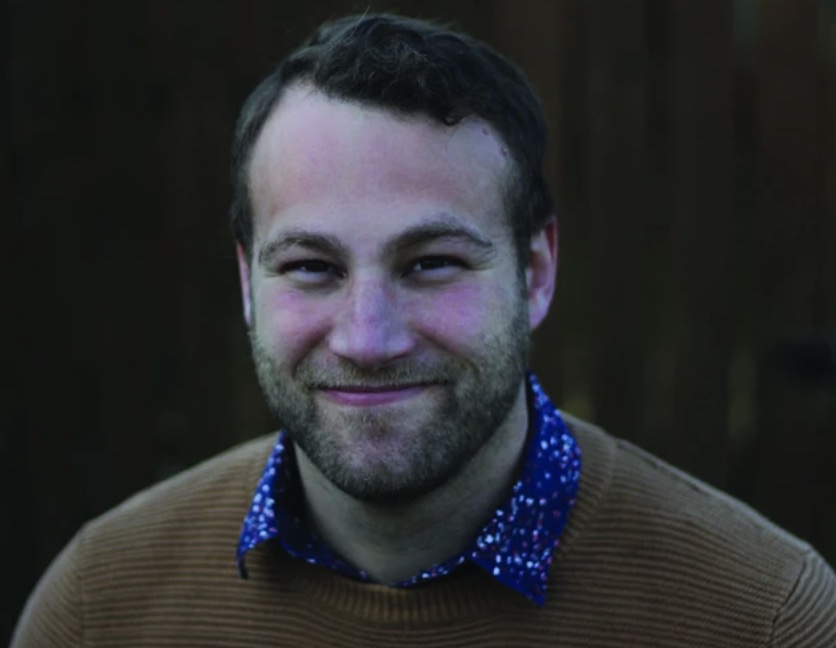
Krispin Mayfield: I am Krispin Mayfield. I live in Portland, Oregon, I’m a therapist here. I work mostly with couples and I have a background in full-time ministry. I am married to D.L. Mayfield, who is a wonderful writer and also parent of two kids and a survivor thus far of the pandemic with two kids and online school and all of that.
I grew up in the church. My dad was a pastor for part of my early childhood, and it definitely was a huge part of my identity. I grew up in this small town in southern Oregon, really a part of a church there. And then when I was twelve, my family moved to China. My parents became missionaries, which was such a change to go from this small rural town to a city of twelve million people or more.
I began Bible college in a pastoral program with the intention of becoming a pastor. And then I got to a preaching class and I was like, “Oh, this is not what I want to do. I just want to talk with people one on one about important things, including faith in their lives.” And so I switched and eventually got a degree in biblical studies and then went on to get my master’s in counseling and went on to become a therapist. My main priority was to walk alongside people and find out, What does healing look like? What’s the good news for them in light of their story?
It wasn’t until I was over the age of thirty that I really was even able to recognize that, Oh, I’ve been operating as though God is just waiting to get rid of me. Like, if I make one slip up that God just is going to disconnect from me, that God’s going to give up on the relationship, that God’s going to abandon me. There was this sense of dread in my spiritual life. I can look back and say, Oh yeah, I can see this when I was like fourteen and fifteen. But it carried on for over a decade to recognize even in the middle of ministry.
Even as I’m doing my own healing work, there’s this feeling in the back of my mind of, I don’t know if God likes me enough to keep me around. And so that was, first of all, really difficult to own and to set aside all the theological arguments that I could make about salvation and predestination and all that and just being able to talk to God directly and say, “It feels like You don’t like me, and You don’t really want to keep me around.”
It was this existential anxiety because if God is just waiting for me to slip up, that means not only do I lose my connection with God, but my eternal fate is also wrapped up in tha, and my relationship with my wife and my kids, and this feeling of, Am I going to be alone forever? That’s a lot of anxiety to carry around, and yet that was the message that I was given growing up in church. I was told that “Your salvation is not about faith, it’s about a relationship.” And then I was implicitly told, “And your relationship depends on the behaviors that you do.”
Learning How We Relate to God
In the church, how we approach relationship with God is like what we know. We try to read books, we read theology, and we think that’s how we relate to God. But the science actually shows us that the way we relate to God is just the same way we relate to everyone else. It’s in this part of our brain that isn’t really connected to the theological facts we know, it’s connected to intimacy, feelings of safety. Do I have a deep belief that God is there for me and God cares about me? Or is there this feeling like, I don’t know if God really likes me or God really cares about me, or, God’s always disappointed in me. And a lot of times it can be hard to give air to those feelings. It can be hard to recognize.
“The science shows us that the way we relate to God is just the same way we relate to everyone else.” – Krispin Mayfield
And if I can understand my attachment style and how I relate to others, might I start to notice Oh, I also relate to God in this way, even though I know the theological truth that God is always there for me. It kind of feels like I need to keep God around like I need to do the work. And I end up being exhausted.
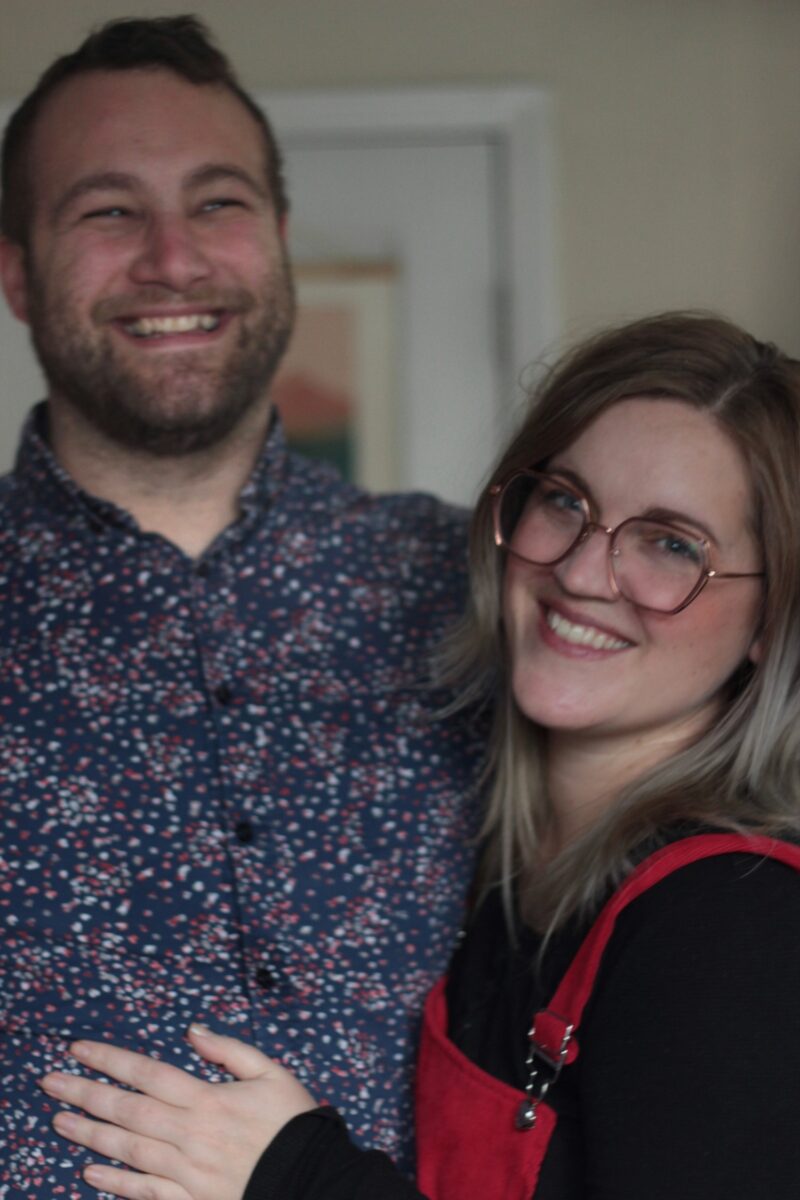
Learning about attachment science, it really helped me understand, Yeah, there’s not such a big separation between how we approach God and how we approach the rest of our relationships in our lives.
So we have this God-given drive to connect with others and with God, and we’ll do whatever we can to get that connection. However, if it feels like I can’t just easily get that connection regularly with the people that are important to me, we come up with these different strategies that turn into these different styles of relating. So we have these different ways of relating with God. And when we look at the science that’s there, when we’ve studied relationships, we can actually take that science and look at how does this science help us understand the ways that we relate to God? We want closeness with God, and actually, there are these predictable patterns of how we try to get it, especially depending on what beliefs we’ve been told about God.
“We want closeness with God. And actually, there are predictable patterns of how we try to get it, especially depending on what beliefs we’ve been told about God.” – Krispin Mayfield
Three Unhealthy Ways We May Attach to God
Anxious Attachment
The first attachment style is anxious. That’s when I believe the relationship falls squarely on my shoulders. It’s up to me to keep connection and keep closeness. So I have to do the right things, I have to act the right way, I have to pray the right prayers. And if I don’t, I’m going to immediately lose that connection with God.
It’s actually really exhausting to be in that place to always be thinking, Okay, am I praying enough? Am I thinking about God enough? Am I doing enough Bible reading? I see this show up in the church in different ways, and it makes total sense if you’ve been told, Yeah, connection with God is your responsibility, but it means that we don’t actually get to rest.
Shutdown Attachment
Secondly, there is a shutdown attachment style, which is where I’m worried that my negative emotions are going to get in the way of my connection with God. So if I’m sad or if I’m worried, that means I don’t actually trust God or I don’t have faith. And so I have to pretend like I’m okay so that I can keep this closeness with God. And these are people that tend to be like, “I’m not really an emotions person. I’m just logical. I just need the truth of the Bible.” And those are all helpful. But what ends up happening is you actually disconnect from your own emotions, and you don’t get to a place where you can connect with God on an emotional level. You may feel like, “I just need to stuff those emotions away. I just need to push those emotions away and just focus on the truth.” And I think that really contrasts with a lot of what we see in scripture.
If you read the Psalms, you see the Psalmist continually says, “Here’s what I’m feeling” and brings it to God. But in a lot of our church traditions, it’s almost like we have to check our emotions at the door. And the idea is that, I need to be happy, I need to be calm, I need to be content if I’m going to keep my connection with God, if I’m going to be a good Christian. We actually see this show up in human relationships, too, where it’s like, I’m worried that if I am sad or if I’m anxious, it’s going to drive other people away. They’re not going to be able to handle my emotions. I believe that if you’re sad or worried or don’t have hope, those are great things to bring to God knowing that God can handle it and God can meet you there.
“I believe that if you’re sad or worried or don’t have hope, those are great things to bring to God, knowing that God can handle it and God can meet you there.” – Krispin Mayfield
Shame Attachment
The third attachment style is called a shame-filled attachment style. And this is when we believe that God doesn’t really like us, that God wants to save us, but God is also disgusted with us. And so we end up beating ourselves up with this negative talk. And it’s like saying, “God, I know I’m so horrible and You think I’m horrible.” And the issue that comes up with this is that we then miss what’s most true about us, which [is that] we are beloved children of God.
I think of Henri Nouwen, who talks about the work of prayer being to listen to God’s voice of belovedness, telling us that we are loved. And instead what we do is we get stuck on focusing on everything that’s wrong with us and feeling like, God doesn’t like me.
I know for me, I grew up with some of this attachment style. For me, it was like, God wants to make me a perfect version of Krispin, but God doesn’t actually like the Krispin that exists today. And so it’s been a transformation for me to move from this place of being afraid that God is going to punish me or judge me to knowing that even with all my flaws, God still likes me.
“It’s been a transformation for me to move from this place of being afraid that God is going to punish me or judge me to knowing that even with all my flaws, God still likes me.” – Krispin Mayfield
I think of Mister Rogers, who was an ordained minister, telling kids, “I like you just the way you are.” And I think that’s a message that God has for us. It doesn’t mean that we don’t have places to grow. But God really likes us, and I think that’s something that gets missed often. And if it gets missed, then we feel like, All right, if I’m going to get connection with God, I need to prove to God I know how horrible I am in order to get the connection that I need.
There’s No Wrong Way to Spend Time with God
One of the things that really stood out to me in the research is that the way we build trust and security with the people in our lives is that time that we’re just together. We don’t really have a goal. We’re just hanging out. We’re just connecting. And I think that’s what God was instituting around Sabbath, this time to not have anything else to do, to just spend time together.
Unfortunately for me, growing up, a lot of what I ended up doing was even if I was spending time with God, it was always around this idea of, I need to hear something, I need to learn something, I need to take something away from it. Even though it was just time with God, it always had this goal to it.
And so I’ve been learning a lot about Sabbath and this idea of just being with God—not worrying so much about if I’m getting it right, not worrying as much about my behavior and focusing on the fact that I’m a beloved child of God. And how do I let that be my identity, not the dependence on if I’m doing it right or if I’m doing the right things?
“I’ve been learning a lot about Sabbath and this idea of just being with God—not worrying so much about if I’m getting it right, not worrying as much about my behavior and focusing on the fact that I’m a beloved child of God.” – Krispin Mayfield
This is a passage from Jesus Calling for June 2nd:
Relax in My healing, holy Presence. Be still while I transform your heart and mind. Let go of cares and worries so that you can receive My Peace. Cease striving, and know that I am God.
Do not be like Pharisees who multiplied regulations, creating their own form of “godliness.” They got so wrapped up in their own rules that they lost sight of Me. Even today, man-made rules about how to live the Christian life enslave many people. Their focus is on their per- formance, rather than on Me.
It is through knowing Me intimately that you become like Me. This requires spending time alone with Me. Let go, relax, be still, and know that I am God.
I actually really like to think about Pharisees often—I like to call them “religious leaders” because it’s not just the Jewish religious leaders who do this, we do this in the church all the time like the passage talked about. But if I gave these religious leaders the benefit of the doubt, I think what they’re trying to do is they’re trying to get connection with God. And the way that they’re doing it ends up harming themselves and others. But we can see that they’re so desperately trying to follow the rules to keep that closeness. And I think that has been transformative for me to recognize that the more I try to keep closeness through following the rules, the less secure I actually feel. Because then, I never get that chance to test the relationship and see that even if I fail at everything, God is still there holding me.
“The more I try to keep closeness through following the rules, the less secure I actually feel. Because then . . . I never get a chance to see that even if I fail at everything, God is still there holding me.“ – Krispin Mayfield
Continuing to do my own work, I’ve been trained to pray very honest prayers. And so sometimes that means saying to God, “I really want to trust You, but there’s still this part of me that feels like, ‘God is just waiting to punish you, God is disappointed in you.’” So I’ll tell God about that part and say, “It’s still hard to trust that You’re safe.” And I know that God can handle that, that God can hear that.
Actually, there’s research that shows having those conversations in human relationships builds trust. By being able to say those things out loud, they lose their power. And I believe that it’s the same thing with God. And so I’ve noticed as I’ve been trying to have very honest prayers, there is power in that and there’s increased security in feeling closer and feeling connection and knowing that those things might even be there some days. And that’s okay. God can handle that. God’s still there.
Narrator: You can find Krispin’s book, Attached to God: A Practical Guide to Deeper Spiritual Experience, wherever books are sold.
If you’d like to hear more stories about how a real relationship with God can change our perspective on difficult situations, check out our interview with Chris Norton.
Next Week: Brett Warren and Brad Warren
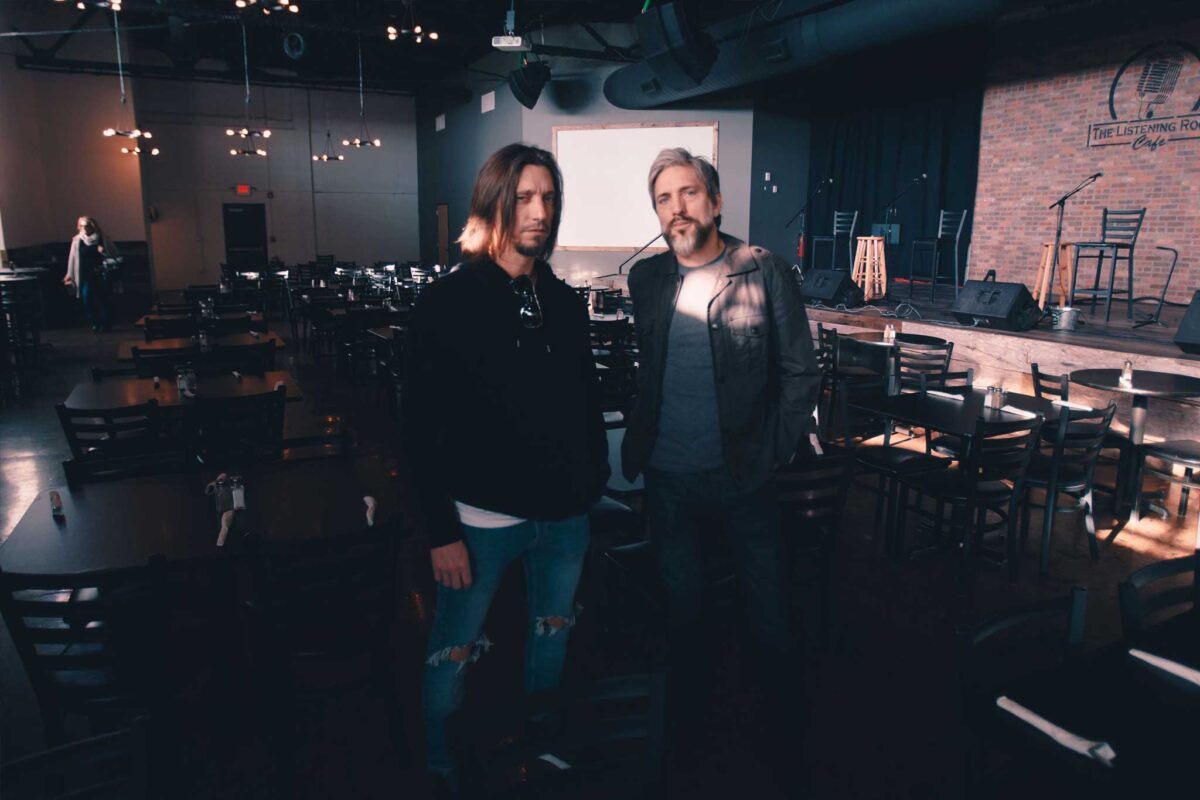
Narrator: Next time on the Jesus Calling Podcast, we hear from Brett Warren and Brad Warren, Grammy-winning songwriters and country music stars who talk about how they struggled with alcohol addiction and how tapping into their faith foundation began a journey to healing.
Brett Warren: We didn’t drink early in our lives. We waited till early twenties and sort of tiptoed away from the mothership: you know, everything you’d learned in life, your foundation and spirituality. It was sort of all religion at that point, not much relationship. I didn’t really plan to go that far, but you just sort of tiptoe away from the boat far enough, and you look up one day and it’s a long way away.
